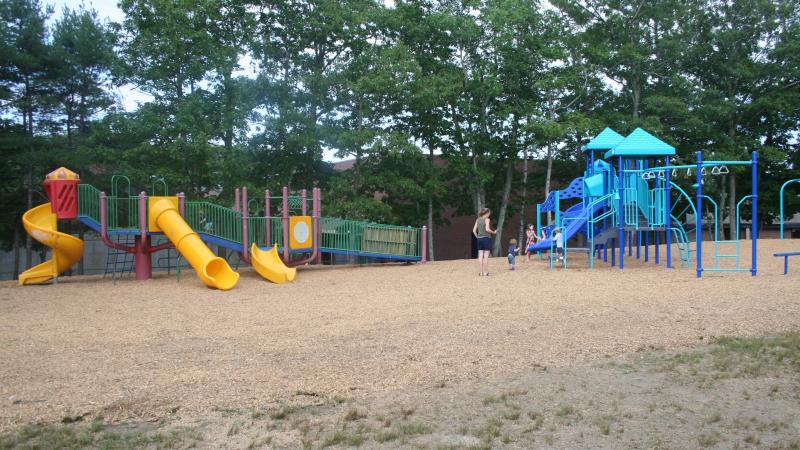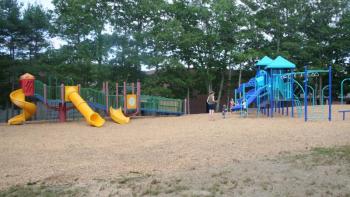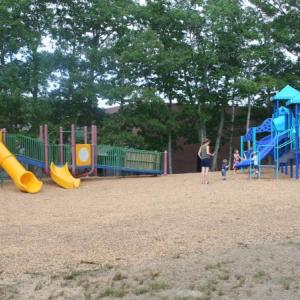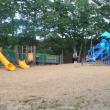BRES to submit full-day pre-k in budget to CSD
Eight years after Boothbay Region Elementary School launched its pre-kindergarten program, educators are now trying to bring a full-day program to the peninsula.
Pre-k teacher Kate Rice, Assistant Principal Tricia Campbell and Principal Shawna Kurr drew up proposals for Community School District School Committee members Jan. 15. Kurr and Rice presented them.
“We feel like full-day would be in the best interest for the children of our community. It would allow us to integrate the (state’s) full framework, it would allow us to have a stronger home/school connection … I take my job very seriously and it frustrates me that I can't get to everything that I feel like I should be able to on a daily basis,” Rice said.
Rice said the full-day program would be a win for teachers, parents and students. In many cases, with half-day pre-k, children who attend BRES in the morning are dropped off by parents in the morning and take a bus to daycare. Those who attend school in the afternoon are at daycare when they catch a bus to school, and any students whose parents work 9 to 5 have to go back to daycare before being picked up.
“It would be a lot less fragmented for the kids,” said Rice.
A full day would also enhance school and community connections with field trips, guest speakers and teachers, cover more material and aid the pre-k experience that sets up readiness for kindergarten, said Kurr. “And better readiness for kindergarten definitely sets you up for greater success – earlier acquisition of language, reading skills, math skills, increased attendance … Studies are showing a decrease in chronic absenteeism. A better overall physical health.”
Kurr and Rice gave two proposals with projected costs. One would add a full-time teacher, educational technician and $9,500 for material costs, for a total of $126,500. The other would move a kindergarten teacher to pre-k and add one full-time ed tech and $5,000 for material costs, for a total of $86,000. Full-day pre-k would also take off about $10,500 in transportation costs and the BRES K/2 wing will accommodate two pre-k classrooms side by side at no new cost.
Kurr said she prefers the first proposal and will be including it in the budget she hands off to the committee. “(The second one) is not my favorite because I feel like … 20, 21 kindergarten kids in the classroom? It's a lot of kids. It's a lot of needs and you don't have a full-time ed tech.”
For seven years, Rice has sent students home with surveys for their parents to fill out about how the program could be better. Parents lauded the program, but pointed out how a full-day program can remedy a few issues. For example, some daycares charge a full day even if a child does not attend all day, and some families opt for daycare only so their child is not constantly transitioning between care all day. Parents and educators said a full day of pre-k would have several benefits including increased readiness for kindergarten, instruction on the full framework, a stronger school and home connection and school and community connection, and saving about $10,500 in transportation costs.
The Boothbay Register wanted to know how full-day pre-k would affect some of the region’s families, so it talked to a few parents and with Campbell after the meeting. Boothbay Region High School and BRES gifted and talented teacher Emily Higgins said her eldest child attended BRES for pre-k, but her middle child could not as Higgins’ husband needed to go back to work and the schedule did not allow for it.
“She went off-peninsula to another preschool so that she could go for an entire day,” said Higgins. “But I really hope that our third child will be able to attend BRES prekindergarten when he is old enough. I look forward to him making friends here in town and benefiting from all the resources that BRES provides.”
Julia Peters said her eldest child attended the BRES pre-k program and they loved it; however, the midday transition was not always easy. With her youngest about to enter pre-k, Peters said the full-day program would be best for them. “I feel very fortunate to have had Mrs. Rice as my son’s teacher and … I think an all-day program would be beneficial because it allows the children's lesson plans to be taught and then given enough time to actually work and for them to comprehend what they just learned.”
Lynnette Mayotte has two children at BRES and a 4-year-old who will likely not enroll in pre-k if there is no full-day program next year because he already has uninterrupted structure in his daycare. “Transitions can be difficult for many children this age. Most of these children are already enrolled in some type of full-day program. They’re used to their routine … There is also the benefit that all pre-k children, no matter their family’s social economic standing, having access to a full day. Many families may not be able to afford half-day childcare.”
Campbell said BRES administrators have been discussing the full-day program for the past couple of years and have visited other successful programs to determine the needs and obstacles BRES would have.
“We are a close community and the needs of our children and families drive our decisions. Having an all-day program will support the child and family. Participating in an effective pre-k program can help to better prepare students by providing evidence-based academic, social and emotional instruction and guided practice … BRES has done the groundwork and we are ready to move forward enthusiastically.”
Kurr, Rice and Campbell said the outlook is positive for BRES to get some of the grants it is seeking for materials and equipment for a second classroom.
Said Rice, “A lot of parents, it's their first experience sending their child off to school, so I like to give them a lot of detail, a lot of information and I think it would just make them feel a little bit more at peace knowing that their child is just in one place for the entire day …”
Event Date
Address
United States
























